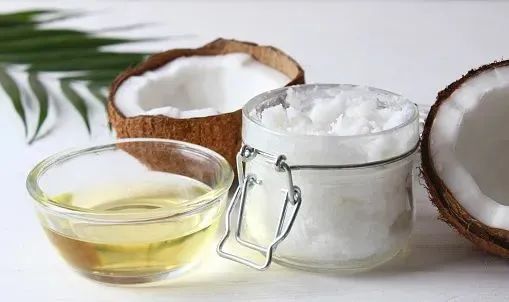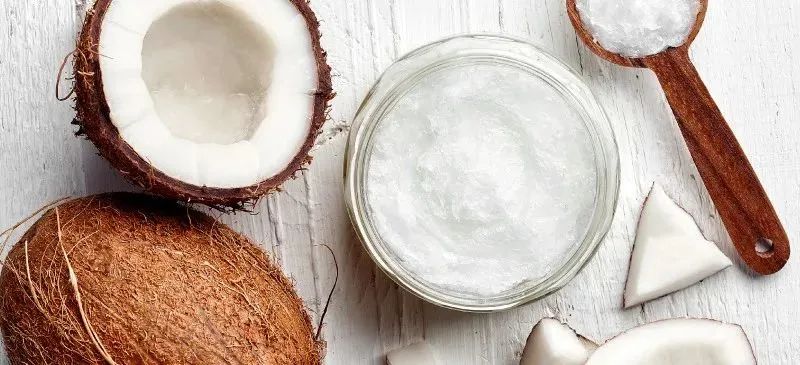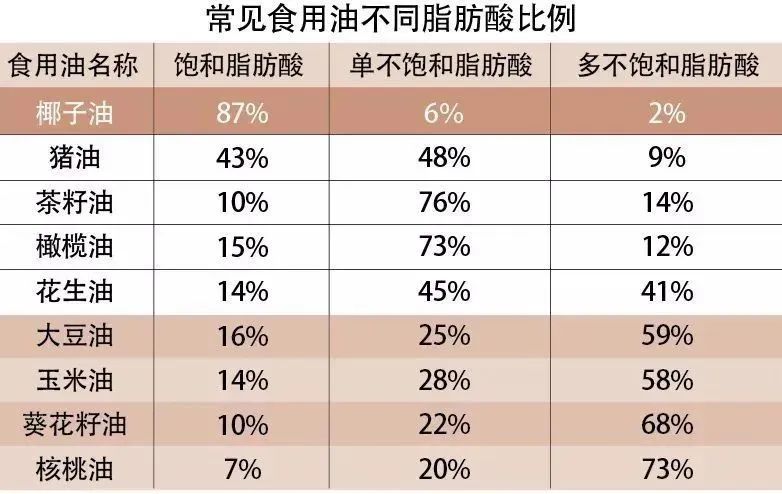When it comes to the oil with the most Internet celebrity temperament, it is coconut oil. Miranda Kerr said in an interview that “postpartum weight loss relies on 4 tablespoons of coconut oil a day”, which made coconut oil popular overnight.
It is said that Angelina Jolie, who is also good-looking and good-looking, starts every morning with a spoonful of coconut oil and a handful of cereals, and Zhong Liti, the goddess of youth, even drinks coconut oil to detoxify.
So starting from the propaganda of the stars, coconut oil has become the superfood of the top Internet celebrities. It has been circulated on the Internet that “coconut oil is the healthiest oil in the world”, and various shopping platforms have high-profile claims that it is “suitable for the elderly, children, pregnant women and all kinds of people”, and has various magical properties such as “weight loss, bad breath treatment, constipation prevention, skin care” and so on. Curative effect, it is even recommended to drink it every day.

However, coconut oil, an internet celebrity, has been “diss” by authoritative health agencies. The American Heart Association (AHA) clearly stated in the 2021 Dietary Guidelines for Improving Cardiovascular Health that “choose liquid vegetable oils over tropical oils (coconut, palm, palm kernel), animal oils (such as lard and butter), and partially hydrogenated vegetable oils.
This… the food that the major stars are calling crazy, the experts seem to deny it? Let’s see why.
Coconut oil, after all, is oil, the main ingredient is fat.
The oils we usually come into contact with are mostly vegetable oils, such as peanut oil, soybean oil, rapeseed oil, etc., which are liquid at room temperature. This is because these vegetable oils mainly contain unsaturated fatty acids.
And animal oils, such as lard, tallow, etc., are also solid at room temperature, because the content of saturated fatty acids in these oils is relatively high. And coconut oil is a wonderful thing in vegetable oil. It is also solid at room temperature, because the saturated fatty acid content in coconut oil is as high as 87%, which is even higher than lard.
Do different fatty acids have the same effect on health?
What are the effects of saturated fatty acids and unsaturated fatty acids on health? Experts generally believe that controlling the intake of saturated fat in the diet is of great significance for improving high and low-density lipoprotein cholesterol (LDL so-called bad cholesterol) and hypercholesterolemia, and preventing the occurrence of cardiovascular and cerebrovascular diseases. Therefore, the Chinese Nutrition Society recommends that the saturated fatty acid intake of Chinese adults, the elderly, pregnant women and nursing mothers should be less than 10% of the energy supply ratio.
If a woman consumes 1,800 kcal a day, that’s no more than 20 grams of saturated fat. But don’t forget that most of the fats in the pork, beef and mutton we usually eat and even the milk we drink are saturated fats. And this 20 grams is to include the saturated fat in these meats.
For example, if you eat 300 grams of whole milk (6.3 grams of saturated fat), 100 grams of pork (10.8 grams of saturated fat), and one egg (50 grams, 2.3 grams of saturated fat) every day, it already contains 19.4 grams of saturated fat. . If you eat a little more snacks such as cookies, potato chips, and pastries, the saturated fatty acids will already exceed the standard.
Because most of these foods are made of oils with high saturated fatty acid content, look at the food ingredients list, shortening, palm oil, hydrogenated vegetable oil, etc. are all representatives of this type of oil.

So what kind of oil should we eat? In fact, there are fats that are good for cardiovascular health, and they are the unsaturated fat family: n-3 series fatty acids and monounsaturated fatty acids. Representative foods rich in them are fatty fish, seaweed, nuts, olive oil, tea seed oil, etc. This type of food can be appropriate to choose some more.

That’s why, in the 2021 Dietary Guidelines for Improving Cardiovascular Health, it is recommended to “choose liquid vegetable oils over tropical oils (coconut, palm, palm kernel oil).” Because palm oil and palm kernel oil are the same as coconut oil, they are mostly saturated fatty acids.
Healthy eating oil, what should I do?
The most important premise of healthy eating oil is that no matter what kind of fat it is, the total amount of fat intake is the most important. Too little fat will not work, it will affect the intake of essential fatty acids and the absorption of fat-soluble vitamins; too much fat will increase the intake of saturated fat, cholesterol and energy.
In the 2013 edition of the Reference Intakes of Dietary Nutrients for Chinese Residents, the Chinese Nutrition Society recommended that the dietary fat energy supply ratio for adults should account for 20% to 30% of the total energy.
On the premise of ensuring that the total fat intake does not exceed the standard, we only discuss the types of fat intake.
Finally, sum up the tips for healthy eating oil:
1 Control the total intake, and the daily edible oil is 25-30 grams.
2 Ingesting liquid vegetable oil, you can eat it in exchange, preferably tea seed oil, olive oil, and canola oil.
3 Cook at low temperature as much as possible to retain nutrients in oil and reduce the production of harmful substances.
Comments